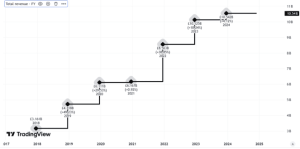The Food and Drug Administration should authorize a second “booster” dose of Johnson & Johnson’s
JNJ,
COVID-19 vaccine for adults who were initially vaccinated with this vaccine, according to a group of scientists and clinicians that advises the regulator.
The FDA’s Vaccines and Related Biological Products Advisory Committee voted 19-0 that allowing adults who were initially vaccinated with the J&J shot to get a booster is safe and effective. Their recommendation is based on giving a booster to those 18 years old and older at least two months after they got their first shot.
“This does look more like a two-dose vaccine,” Dr. Michael Nelson, a professor of medicine UVA Health and the UVA School of Medicine and a temporary voting member of the FDA committee.
One difference with this booster recommendation is that the group of people who would qualify for the J&J booster can get it two months after getting their first dose, compared with six months after the primary series of shots for the mRNA vaccines developed by Moderna Inc.
MRNA,
and BioNTech SE
BNTX,
/Pfizer Inc.
PFE,
If the FDA follows the advice of the committee, which it is not required to do but often does, it means that all three COVID-19 vaccines that are available in the U.S. have authorized boosters, with the caveat that there are restrictions in place on who can get a mRNA booster.
The mRNA boosters are reserved at this time for people older than 65 years old, adults who are at high risk of severe disease, and those who face higher exposure to the virus because of their jobs.
About 15 million people in the U.S. have received the J&J’s adenovirus-based COVID-19 vaccine.
J&J’s stock is up 2.6% so far this year, while the broader S&P 500
SPX,
has gained 18.1%.
This post was originally published on Market Watch






